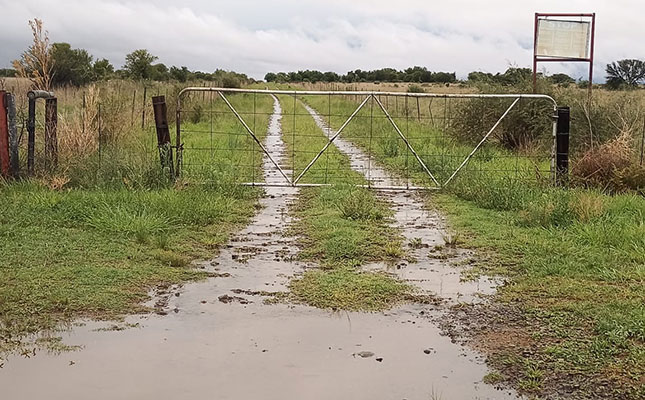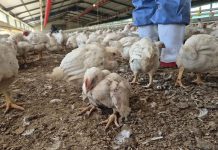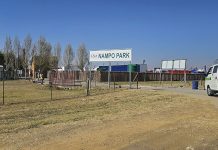
Photo: Annelie Coleman
Farmers in the eastern and western parts of the summer grain production region have reported damage to grain crops following several weeks of rainfall.
This was according to metereologist Johan van den Berg, who told Farmer’s Weekly the summer grain production region had received between 100mm and 200mm of rainfall since the last week of November.
“The situation was exacerbated by the fact that the rain occurred on soils where the moisture levels already reached maximum capacity following the good rainfall of the previous seasons, and the rain earlier in the 2021/22 production season,” he said.
The eastern Free State and Mpumalanga, as well as the high water-table areas in the Free State such as the Wesselsbron, Hoopstad and Bultfontein districts, and the districts of Makwassie and Leeudoringstad in North West, among other districts, had been amongst the worst affected.
“The lack of prolonged periods of sunshine makes evaporation virtually impossible, causing the plants to become waterlogged. This results in a lack of oxygen that impairs plant development, and eventual plant potential.
“Photosynthesis is also impaired by the lack of sunshine. Because of the wet conditions, producers cannot access the grain fields to apply the needed fertilisers to counteract the deterioration of the plants,” Van den Berg said.
Jaco Breytenbach, a grain producer near Fouriesburg, added that he received nearly 200mm of rain over a period of 21 days in November and December.
Although he was able to finish planting maize and soya beans, he could not access the fields to start planting sugar beans.
“We urgently need at least a full week of sunshine coupled with high temperatures for the soil to dry out sufficiently to continue planting.
“However, according to the weather forecasts, rain is expected for the coming weeks. In that case serious damage to crops can be expected,” said Breytenbach.
Van den Berg added that wheat producers in the summer rainfall region was finding it impossible to continue with harvesting because of the wet conditions.
“They cannot get into the fields with the heavy machinery and equipment to continue or start harvesting, which means that the crop is left standing in the fields in the rain.
“This will have a negative impact on the quality of wheat and obviously on the profitability of the crop,” he said.








